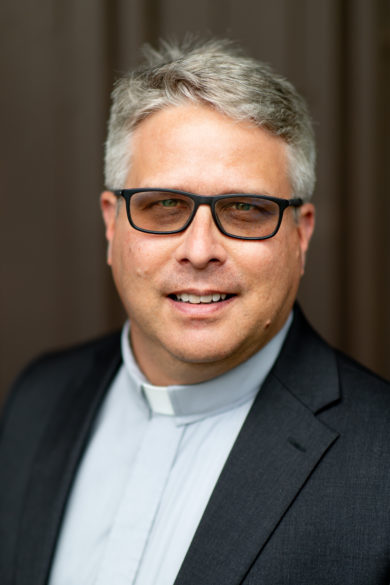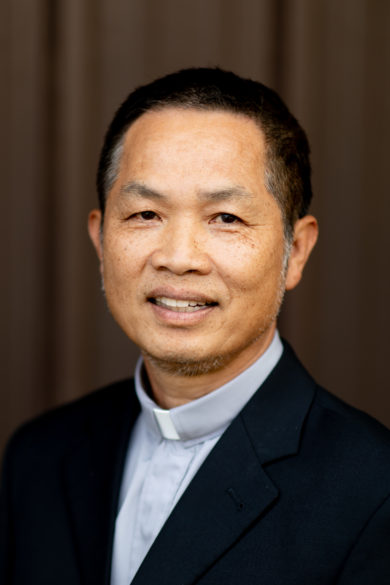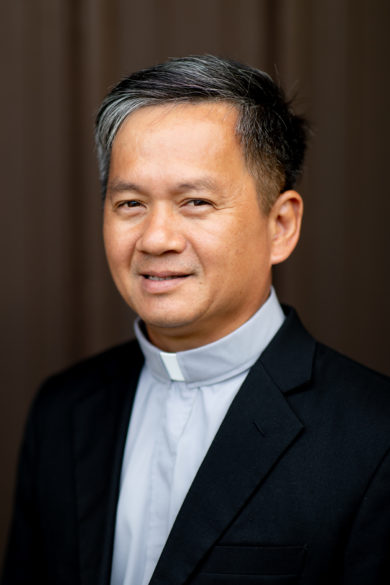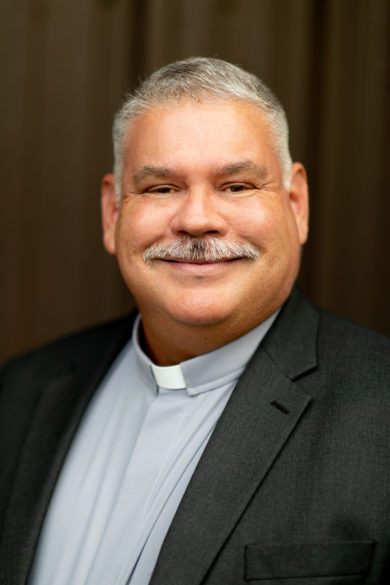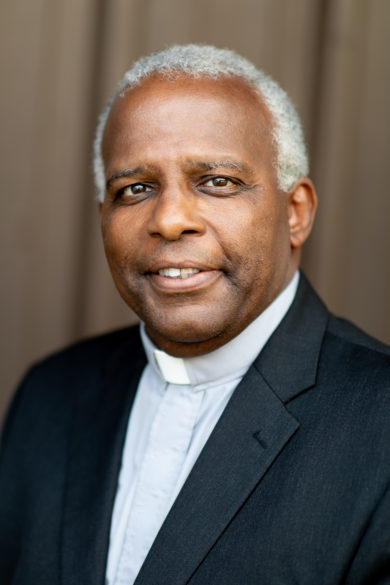Parish: St. Jude, Pearl
Spouse: Rhonda Bowden
Hometown: Currently, Brandon. Originally grew up in Cleveland.
Did you have a conversion or deep faith experience?
I am a cradle Catholic, and one who for a long time really took my faith for granted.
I would call my old-self a nominal Catholic, I was very timid about my faith. I was petrified that someone would ask me “Are you Saved?” Through the discovery and study of apologetics back in the mid to late ‘90s, I discovered so many truths of our faith. This helped me not only to understand what we as Catholics believe, but how to respond to confusion that so many have about our beliefs. That is what ignited my love for the Catholic faith.
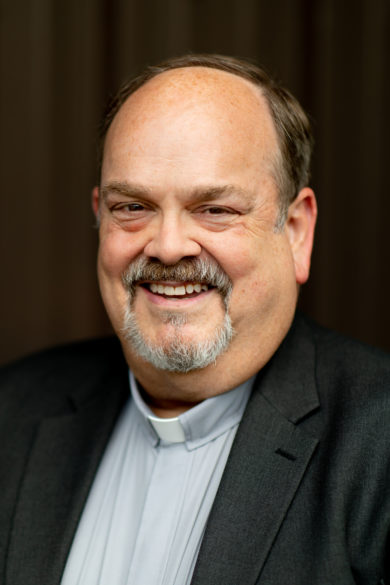
Favorite Scripture passage: No single scripture passage really stands out above the others as so many touch me at different points and stages of my life. But James 2:14-17 which discusses that faith without works is dead is among my perennial favorites. It was this passage and similar ones through defending the Catholic beliefs that ignited my faith for Catholicism a number of years ago.
Favorite religious image: There are a number of crucifixes that portray Christ in a bloody, dirty manner versus the many that really ignore the scourging that took place before the crucifixion. Jesus was nearly dead from beatings when they nailed him to the cross. Those images really touch my soul of the reality and horror that our Lord endured for us. Many times I have gazed upon such an image and bow my head in shame that it should be me instead of Him. What a sacrifice He made for us.
Favorite liturgy: Holy Saturday is my favorite liturgy of the year, as it is when we welcome new members into the church. There is a deep-down joy in seeing new members embrace our faith. It is a compounded joy to celebrate our risen Lord and witness these new people receiving the Eucharist for the first time.
Did you come across something you learned in your formation that you did not expect?
Honestly, the fact that I got ordained really surprises me. The formation process was wonderful for my intellect and my soul, but it took nearly the whole time of almost five years for me to finally desire to be a deacon versus just willing to be one. That conversion was brought about by the prayer of so many.
Vocation story: Deacon John McGregor invited me to consider this calling, but I was initially not interested. However, I was interested though in a theology degree, so I went in with the idea that if the diaconate did not work out, I would have the Master of Theological Studies degree that I did want. So many times during this journey, I was ready to throw in the towel and give it up. But through lots of prayer, discernment and support by many, I finally embraced this calling.
What are you most looking forward to doing?
I think that my heart lies in doing pastoral work, like visiting the homebound, those in the hospital, those in prison, and doing small community evangelization. I fell in love with apologetics, which is understanding and defending the faith, so I am interested in sharing that.
Children: Rhonda and I have two children. Our son Andrew was recently ordained as a priest and our daughter Laura teaches special education in Pearl.
Deacon’s wives questions:
Name: Rhonda Bowden
What did you think when your husband first began to consider ordination?
I was excited to hear that he was open to a call to the diaconate. Mark enjoyed teaching Sunday school and sharing the faith, but he didn’t feel that he was as knowledgeable as he needed to be. He had been contemplating entering a theology graduate program for some time when he was asked to prayerfully consider the diocesan diaconate program. When he and I first talked about the possibility, I did encourage him. He has a servant’s heart and loves helping and ministering to others. It seemed like a great fit for him.
How has the preparation deepened your spirituality?
The time I spend in personal prayer has increased greatly. There were two aspects of the deacon formation that especially fed me spiritually — (1) participating in the annual diaconate candidate/wife retreats and (2) going to Mass together as a group to various Catholic churches in the metro area.
How has the preparation impacted your relationship as a couple and as a family?
Walking this path with him has certainly increased our prayer time as a couple. We are more open to discuss the personal aspects of spirituality with each other, which has deepened our spirituality as a couple and as individuals. Both of our children were away at college/seminary when Mark started in the formation program, so there was not a strong direct impact on them. Both were very supportive throughout the process.
As an added bonus, the formation process gave us the opportunity to get to know the other deacons and their wives. The men formed a true brotherhood, and the wives are all friends. So, our “family” has gotten bigger.
Favorite Scripture passage:
“For I know well the plans I have in mind for you – plans for your welfare and not for woe, so as to give you a future of hope.” — Jeremiah 29:11
I am a planner. I like to have the “who, what, when, where, and how” of life on my calendar at least two weeks in advance. I want to be prepared. That’s not how God operates. I have to be reminded, often, that he is in control, and that he makes better plans than I do.
Favorite saint: There are a number of saints that I have a special connection to or call on regularly for intercession — St. Anthony (Where are my car keys, yet again?), St. Fiacre, St. Rita of Cascia, St. Elizabeth Seton, and Our Blessed Mother. My favorite, though, is saint-to-be Sister Thea Bowman. I saw her interview on 60 Minutes before I became Catholic. Her love for Christ and for others was so transforming, and her energy and joy were contagious.
Favorite religious image or devotion: It’s a long story for another day, but the first time I prayed the rosary changed my life. It is my favorite devotion and I have a collection of rosary beads.
Favorite liturgy: I can’t narrow it down to one liturgy, but I love all of Holy Week. Starting with Jesus’ entry into Jerusalem all the way through to his resurrection Easter Sunday is such a beautiful showing of God’s love for us.

